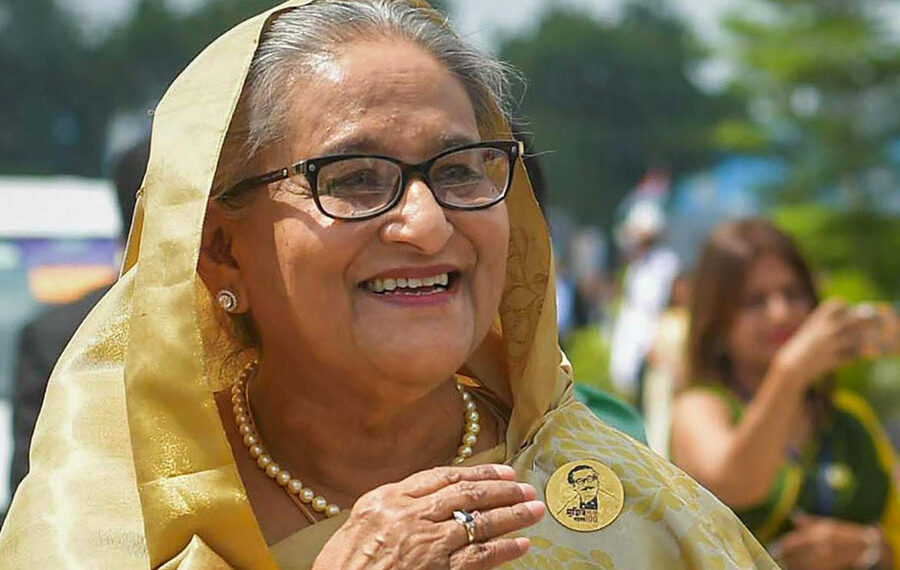On July 9, 2025, the BBC published an investigative report under its BBC Eye banner titled “Ex-Bangladesh Leader Authorised Deadly Crackdown, Leaked Audio Suggests.”
The article centres on an 18-second audio clip, allegedly featuring Bangladeshi Prime Minister Sheikh Hasina, in which she purportedly authorises the use of lethal force in an undisclosed operation.
The BBC reports that the audio was verified by UK-based forensic firm Earshot, concluding that the clip had not been edited or tampered with.
While the piece carries significant political implications, a close review of its evidentiary basis, sourcing, and timing raises questions regarding both its journalistic rigor and its broader strategic impact.
Fragmented Evidence and Missing Context
The report is based on a single, brief audio excerpt—only 18 seconds in length.
It provides no context as to whom the Prime Minister was speaking with, what event or individuals the statement pertained to, or the circumstances surrounding the purported authorisation for force.
The BBC offers no accompanying transcript or explanation that would clarify these critical omissions.
Notably, the network states that the audio has not been “manipulated.” However, the selective release of a partial conversation—without indication of the broader discussion—arguably constitutes a form of editorial filtering.
The very fact that a longer recording must exist, yet only this excerpt is made public, raises valid concerns about selective presentation.
If the complete recording is available to the source, as is strongly implied, withholding it undermines the transparency expected of serious investigative journalism.
Ambiguity in Verification and Source Attribution
The report asserts that the audio dates from July 18 and cites “a source with knowledge of the leaked audio.”
However, it remains unclear why the forensic partner—Earshot—could not determine the recording’s timestamp through digital forensic methods.
Metadata from original recordings can typically reveal when a file was created or modified.
Furthermore, if BBC has access to an internal source familiar with the recording’s origin, it is unclear why the full audio could not be obtained.
Despite leveraging forensic verification, the report omits critical information that could establish context or confirm whether the excerpt reflects the intent implied in the headline.
This lack of clarity creates a disconnect between the report’s framing and the actual evidence presented.
Timing and Political Implications
The timing of this report’s release also warrants scrutiny. Just days prior, the United States announced a 35% tariff on Bangladeshi exports—a development attributed to the interim administration’s failure to conclude key trade negotiations.
The Bangladeshi economy is now poised to face considerable disruption.
Simultaneously, the country is confronting a troubling rise in gender-based violence, a deteriorating security climate, and growing public discontent.
Mob violence and law enforcement breakdowns have recently drawn heightened international attention.
In this broader context, the sudden re-emergence of a brief, previously circulated audio clip—now endorsed by a prominent international media outlet—may serve to distract both domestic and international audiences from these more urgent and material issues.
It is worth noting that the audio in question was initially leaked in March 2025 but failed to gain traction at the time.
Its renewed prominence now appears to be closely aligned with the political pressures facing the current interim government.
Reiteration Without Revelation
While the BBC presents the report as a novel revelation, many of the allegations it references have been publicly aired in various forums over the past year, including in politically motivated UN and NGO reports.
The central claim—of state-directed suppression of dissent—is not new. What distinguishes the BBC’s version is its institutional credibility and global reach.
However, that credibility carries a responsibility: namely, to report in a manner that is comprehensive, balanced, and fully contextualised. Unfortunately, this report appears to prioritise narrative over nuance.
The Imperative for Responsible Journalism
Given its influence, the BBC plays a significant role in shaping global understanding of complex political dynamics in the Global South.
It is essential that such reporting adheres to the highest standards of transparency, factual accuracy, and source accountability—especially when dealing with issues of national governance and public security.
Selective reporting based on fragmentary evidence risks misinforming the public, polarising political discourse, and inadvertently supporting strategic narratives that may not reflect the full truth.
Bangladesh’s political context is undoubtedly complex and worthy of close international attention.
But credible journalism must go beyond dramatic headlines and provide audiences with the clarity and depth required to understand that complexity.















